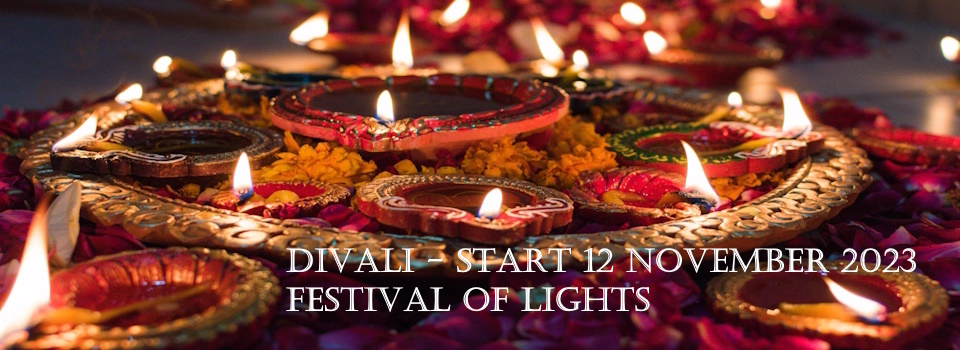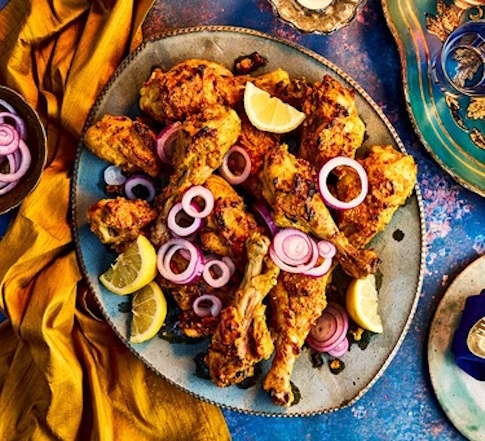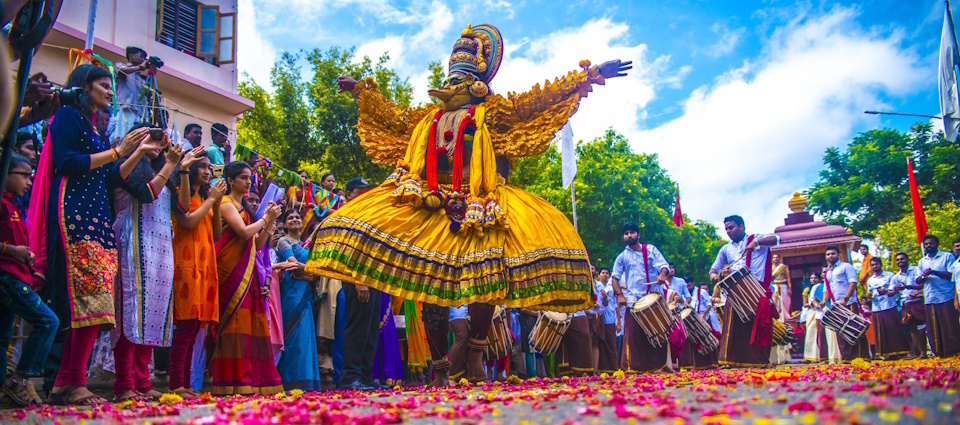November - Diwali
Divali - start 12 November 2023 for 5 days
Samhain in 2023 felt as if it lasted for almost a fortnight - starting as we prepared for Halloween on 31st October through to Remembrance Sunday on 12th November.
And then we moved into the energies of the preparation for Winter Solstice. The nights draw in and the temperature drops. Inside we light the fire and sidelights, and maybe a candle or two.
2024 : 1st November, 2025 : 20th October, 2026 : 8th November, 2027 : 29th October, 2028 : 17th October

Diwali is celebrated by Hindus and others. The date of Diwali changes annually – it’s always celebrated on a moonless night in October or November. It symbolises the spiritual "victory of light over darkness, good over evil, and knowledge over ignorance". ...
Every region in India has distinctive traditions for commemorating this festival.
From National Geographic - Diwali
- In northern India, they celebrate the story of King Rama's return to Ayodhya after he defeated Ravana by lighting rows of clay lamps.
- Southern India celebrates it as the day that Lord Krishna defeated the demon Narakasura.
- In western India the festival marks the day that Lord Vishnu, the Preserver (one of the main gods of the Hindu trinity) sent the demon King Bali to rule the nether world.

Diwali is celebrated over five days.
Two days before the main festival day, it’s considered good luck to buy a metallic kitchen implement, such as a steel ladle, or, if budget allows, a more extravagant kitchen appliance.
The day before Diwali is known as ‘chotti Diwali’ (or ‘little Diwali’). Traditionally, it was a day for getting on with preparations for the big day, but now it’s also an opportunity for last-minute errands and gift exchanges. It’s also a time when intricate floral and geometrical designs, known as ‘rangoli’, are created on floors using coloured powders, rice flour and flower petals.
- People clean their homes and shop for gold or kitchen utensils to help bring good fortune.
- People decorate their homes with clay lamps and create design patterns called rangoli on the floor using colored powders or sand.
- On the main day of the festival, families gather together for Lakshmi puja, a prayer to Goddess Lakshmi, followed by mouth-watering feasts and firework festivities.
- This is the first day of the new year, when friends and relatives visit with gifts and best wishes for the season.
- Brothers visit their married sisters, who welcome them with love and a lavish meal.

Vedic Astrology
Pleiades ( Krittika nakshatra ) are celebrated when the New moon is
in the 'month' of Kartik - which is the festival of Diwali -
corresponding to the time when sun is in Scorpio and is opposite to
Taurus that overlaps the constellation Pleiades. Which means, sun and
moon are on one side of earth and Pleiades on the opposite.
The constellation is related to Agni a fire god. Thus the sector
along the eliptic related to the Pleiades has the power to cut through,
burn and
purify.
Whatever the reasons of celebration of diwali in different religions, essentially the day marks the celebration of light and fire, literally and metaphorically. And that is why lighting oil or ghee lamps is the best way to celebrate, as fire is auspicious today and lamps subtly purify a space.
There is also a water connection as, at this time, many go to the River Ganges for ritual washing. The Goddess Ganga is revered. She is a deity who descended to earth to purify souls and release them from samsara, the endless cycle of death and rebirth.
For more information on the Pleiades click here.





